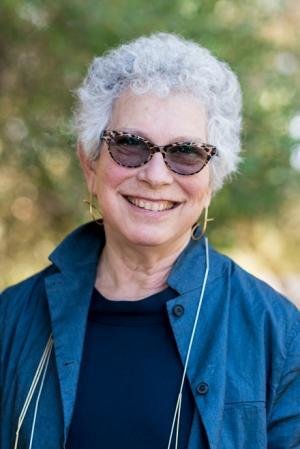CASBS is flourishing. Our fellowship class is strong, our programs are delivering on their promises, and we are receiving increasing recognition at Stanford, in the Bay Area, and globally as an important contributor to discussions of and advances on significant societal challenges.
We also happily welcome a new director of development, Teresita Heiser, to our leadership team.
The new “Collaboratory” is getting closer to being a reality, and it will substantially amplify our work. As I write this letter, we have raised a little over $7 million, our original fund-raising goal and enough to proceed. However, we continue to work hard to meet the revised goal of $7.5 million that will enable us to have wider choices over materials and amenities for the Collaboratory. We remain hopeful that we will break ground in the summer of 2020.

Among my many goals as CASBS director are to ensure:
- The fellowship class is a vibrant cohort of extraordinary thinkers
- Our programs and projects generate new thinking and research
- Stanford appreciates the importance of the Center
- CASBS continues to lead the way in rethinking what it means to be an institute for advanced study in the 21st century
As described below, we are achieving the first goal. And we have made significant progress on the second. In this newsletter we put a particular focus on our “Creating a New Moral Political Economy” project. As you'll discover, an already thriving project just received a great vote of confidence.
We have several measures of how CASBS has gained recognition within Stanford. The most important perhaps is the role the Center is playing in managing the new Integrative Hub on Ethics, Society and Technology, a presidential initiative that is an outgrowth of Stanford’s long- range planning process. I co-chaired the design team and now co-direct the hub with Rob Reich, Professor of Political Science, Faculty Director of the Center for Ethics in Society (CES), and co-Faculty Director of the Center on Philanthropy and Civil Society (PACS). We and our centers were chosen by Stanford President Marc Tessier-Lavigne and Dean of Humanities and Sciences Debra Satz (a 2017-18 CASBS fellow) to take the lead because of the contributions we already have made to the questions the hub must address: how to stimulate culture change at Stanford in terms of enabling our whole community (students, researchers, faculty, alums) to consider ethical implications and societal consequences of technological and scientific discoveries. The hub, which has a three-to-five-year lifespan, is not a new center but a coordinator of existing efforts and a stimulus for new ones.
In terms of the role of CASBS in creating a 21st century model of an institute for advanced study, our combined emphasis on fellows and ongoing programs is already attracting attention. For example, we recently learned that the Swedish Collegium for Advanced Study (SCAS) is explicitly referencing us as it develops a variation of our model, and the Radcliffe Institute for Advanced Study asked us for materials and guidance on programs that have societal impact. In addition, the Rockefeller Foundation and the McKinsey Global Institute have both suggested some partnering opportunities, and O’Reilly Media now regularly includes CASBS current and former fellows in its list of invitees to Foo Camp. The American Academy of Arts and Sciences has now several times asked for our assistance in planning events at Stanford.
Now let me turn to some of the day-to-day business of CASBS.
Fellows, Faculty Fellows, and Research Affiliates
This fall I welcomed the sixth cohort of fellows under my directorship. It is an exciting group of thinkers who are proving to be extremely engaging and collegial individuals. I will provide a fuller report of their activities in the spring.
Our increasingly active Stanford faculty fellows are making useful connections for our regular fellows throughout Stanford, and more of them are now joining us for lunches, seminars and working groups. Our research affiliates – those from outside Stanford but with leadership positions in one of our projects – continue to help with project planning, grant-writing, and dissemination.
Outreach
As we expand our outreach, I’d like to draw your attention to a new outreach web page that assembles a range of activities CASBS undertakes to publicize how our programs and fellows advance our understanding of human behavior and institutions. Let me highlight two recent additions to our communications portfolio.
The first is the CASBS podcast, Human Centered, co-produced and hosted by former New York Timesreporter, former fellow, and now research affiliate John Markoff. The conversations highlight current and former fellows and those engaged in our research projects. The second is our new partnership with Public Books, a digital journal of ideas and reviews, co-edited by former fellow Caitlin Zaloom. Fellows, past and current, will write about books in our Ralph W. Tyler Collection or particularly inspiring “ghosts” in their studies. There also will be reviews and debates about recently published books that have just entered the Tyler Collection.
One additional form of outreach recently introduced is a series of dinners funded and hosted by Bloomberg Beta. James Cham, a partner at Bloomberg Beta, and James Currier, managing partner of NFX, invite guests to meet with selected current fellows. The goal is to introduce technologists to ideas and research that would improve their work and perspectives. The dinners have the additional benefits of identifying new potential supporters of CASBS and providing our fellows with links to the technology world.
We are achieving a lot at CASBS. With your help, we can improve what we already do and begin to achieve even more.

